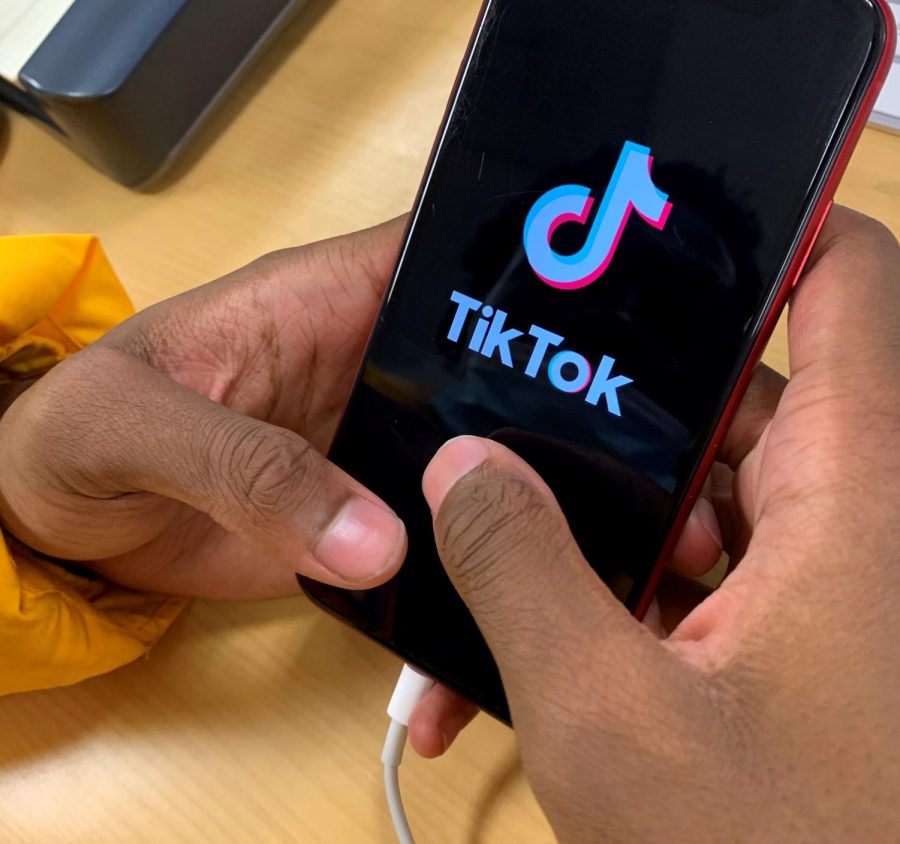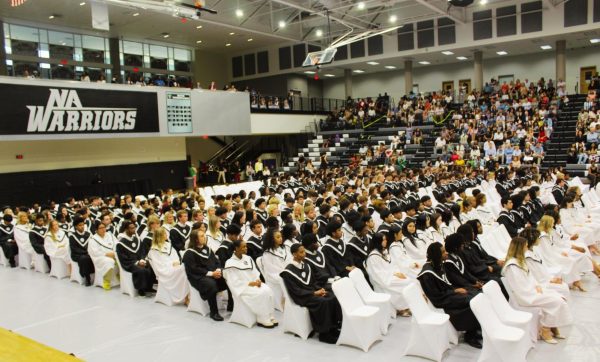The Deadly Virus: Addictive Social Media Chews Up More of Our Spare Time
Time Suck: Tick Tock … TikTok: The Dubs debate whether social media is a miracle for communication or a time-wasting disaster.
How much time do you spend on social media platforms a day? If you don’t know the answer to that question, then maybe it’s more than you’d like. We teens have grown so accustomed to technology usage that we’ve forgotten how to communicate verbally. Most of our conversations take place somewhere online. Text message, call, Facetime, and any other social media platform are our go to resources for communication nowadays.
Don’t get me wrong, there’s nothing wrong with online communication, but we’ve lost our touch as a generation because of it. We used to talk to our peers so much more than we do now. The average teenager spends about nine hours a day on social media platforms. This task has them scrolling through meaningless posts and memes that make them and their mutuals laugh. “I send my friends memes and TikToks all the time about the most random stuff and it’s so funny”, said senior Darnell Johnson.
It might sound like a minor detour to the bros group chat but it takes up so much of our time. Think of how much time that it takes to look at how many likes or views you got on a post when you could be doing homework or getting ready for school or practice. “I’m literally addicted to TikTok. I’m on it way too much even though I probably should be doing my work and studying”, said sophomore Zoey Skyee.
This is no issue for senior Paul Marchand. He uses social media to educate himself and ultimately sees it as a life saver. “Social media isn’t all fun and games, some videos are also informative as much as they are entertaining”, Marchand said.
From aimlessly scrolling to severing socialization, social media is changing our generation more than we realize. Football coach and U.S. government teacher Jeremy Gainer is one who has seen the changes over the years in the students he teaches. “Social media has a great impact, with its ability to communicate across multiple different venues and mediums,” he said. “It provides an access to information that would’ve taken minutes rather than seconds to achieve.
But Gainer has made it a point to study the medium’s more toxic effects upon teens. “It can isolate us and cause depression, anxiety, and lack of self esteem, making this generation less capable of handling reality.”
Gainer made a point of noting the negative effects that social media has in the domestic sphere. Parents had to go as far as banning phone usage at the dinner table just to put a brief separation between their kids and social media. This experience is something that this author can strongly relate to.
So, too, can senior Jordan Maye. In his opinion, the “no phones at the dinner table” rule is a good thing. “I think that when you’re at the dinner table with family that time should be used to bond and talk to your family, especially if it’s a big dinner like Thanksgiving with cousins and extended family,” he said.
As a teen, social media’s negative traits directly impact Maye. However, he isn’t an avid social media user like his peers. “Sometimes I have to delete Instagram and I find myself redownloading it to see what my friends are up to,” Maye said.
Social media: Is it a miracle or a disaster for us? I mean who knew that so much good and so much bad could come from the same place? Well now we know and hopefully North Atlanta students will be able to weigh the differences and cut down on their scrolling. Or … not. Scroll on, Dubs!












